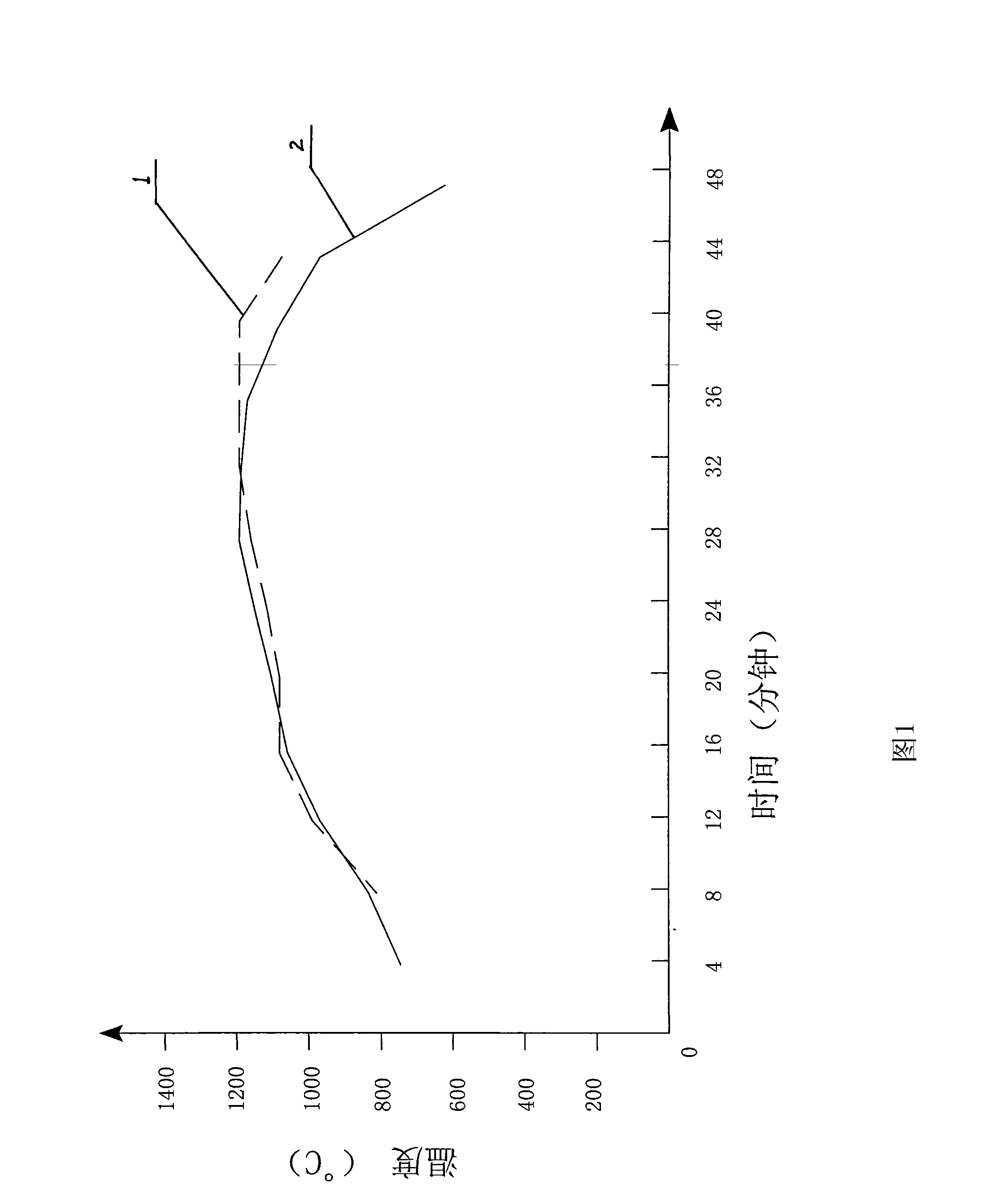Ultra-thin ceramic outside-wall brick and production method thereof
A ceramic and ultra-thin technology, which is applied in the field of ultra-thin ceramic exterior wall tiles, can solve the problems of affecting the overall performance of the product, poor compatibility, and insufficient uniformity, and achieve improved clarification and homogenization, good bonding, and increased affinity effect
- Summary
- Abstract
- Description
- Claims
- Application Information
AI Technical Summary
Problems solved by technology
Method used
Image
Examples
Embodiment 1
[0048]The binder bentonite with a particle size of 0.3mm was calcined at 800°C for 30 minutes, and 6 kg of the calcined bentonite was mixed with 15 kg of clay, 15 kg of kaolin, 10 kg of sodium sodium, 10 kg of potassium feldspar, and 39 kg of quartz Feldspar tailings, 5 kg of lithium feldspar raw material and 100 kg of water are mixed and stirred to make a slurry; the slurry is ground by a 40T ball mill with a diameter of 4 mm high alumina balls to a particle size of 250 mesh sieve 1.5, use the air dryer to dry the mud material into powder; press the dried powder in the mold and then burn it in the kiln at 900°C---1300°C for 40 minutes to obtain a superfine powder with a thickness of 3.5mm. Thin exterior wall bricks, after testing, have a water absorption rate of 0%, a breaking strength of 651N, and a modulus of rupture of 65.9MPa.
Embodiment 2
[0050] The binder bentonite with a particle size of 0.6mm was calcined at 900°C for 50 minutes, and 8 kg of the calcined bentonite was mixed with 12 kg of clay, 12 kg of kaolin, 8 kg of albite, 12 kg of potassium feldspar, and 41 kg of quartz Feldspar tailings, 6 kg of lithium feldspar raw material and 70 kg of water are mixed and stirred to make a slurry; the slurry is ground with a 40T ball mill and high alumina ball stone with a diameter of 8mm to a particle size of 250 mesh sieve 2%, dry the slurry with a spray dryer and dry the slurry into a powder; press the dried powder in a mold and then burn it in a kiln at 1185°C---1200°C for 50 minutes to obtain a thickness of 4.6 mm ultra-thin exterior wall brick, after testing, its water absorption rate is 0.1%, breaking strength: 682N, rupture modulus: 67.5MPa.
Embodiment 3
[0052] The binder bentonite with a particle size of 0.1mm was calcined at 800°C for 20 minutes, and 4 kg of the calcined bentonite was mixed with 18 kg of clay, 18 kg of kaolin, 12 kg of albite, 8 kg of potassium feldspar, and 37 kg of quartz Feldspar tailings, 4 kg of lithium feldspar raw materials and 80 kg of water are mixed and stirred to make a slurry; the slurry is ground in a 40T ball mill with a diameter of 6 mm high alumina balls until the particle size is 250 mesh sieve and the remaining 1.5 , use the air dryer to dry the slurry into powder; press the dried powder in the mold and then burn it in the kiln at 1185°C---1200°C for 45 minutes to obtain an ultra-thin powder with a thickness of 4.0mm. The exterior wall brick, after testing, has a water absorption rate of 0.1%, a breaking strength of 623N, and a modulus of rupture of 63.2MPa.
PUM
| Property | Measurement | Unit |
|---|---|---|
| Thickness | aaaaa | aaaaa |
| Destruction strength | aaaaa | aaaaa |
| Modulus of rupture | aaaaa | aaaaa |
Abstract
Description
Claims
Application Information
 Login to View More
Login to View More - R&D Engineer
- R&D Manager
- IP Professional
- Industry Leading Data Capabilities
- Powerful AI technology
- Patent DNA Extraction
Browse by: Latest US Patents, China's latest patents, Technical Efficacy Thesaurus, Application Domain, Technology Topic, Popular Technical Reports.
© 2024 PatSnap. All rights reserved.Legal|Privacy policy|Modern Slavery Act Transparency Statement|Sitemap|About US| Contact US: help@patsnap.com








